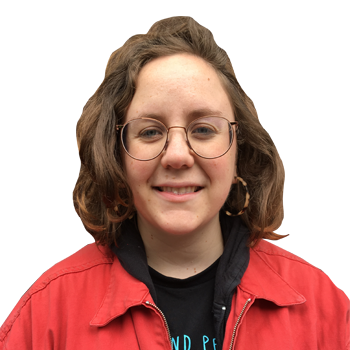Stop dismissing bisexual women like Miley Cyrus. What’s the point in liberation if it’s not everyone?
The need to put ourselves into boxes and reject those who don’t fit may provide a sense of comfort in a harsh world, but it won’t solve discrimination
In a recent article for The Spectator, feminist activist Julie Bindel wrote: “Why are boringly straight women claiming to be lesbians?” In it she accuses singer Miley Cyrus and others of being “lesbian tourists” masking their heteronormativity in a bid to be more “interesting”.
Not long ago, Cyrus, who identifies as queer, described her marriage to Liam Hemsworth as “redefining, to be fucking frank, what it looks like for someone that’s a queer person like myself to be in a hetero relationship”.
While Cyrus’s statement is hyperbolic – she is far from the first queer woman to be in a relationship with a man – Bindel’s argument is far more problematic, ignoring the idea that people can be attracted to more than one gender. And it speaks to a broader issue of biphobia in the lesbian community, where dismissing bisexual women as “confused” or simply non-existent can be rampant.
Bisexuals exist, I promise. There is a clear “B” in the LGBT+ acronym that so many seem unable to acknowledge. If you’re struggling to remember, it’s the “bacon” in the new M&S Stonewall sandwich.
The argument that women who date multiple genders won’t face violence also couldn’t be further from the truth. A United Nations report claims bi women are “especially at risk” of sexual violence. Other studies have found that bisexual women are more likely to be abused by their partner than lesbians and five times more likely than heterosexual women when it comes to sexual assault.
I understand Bindel’s frustration. Of course we all low-key hate the girl who tells you she’s queer but “could never go below” with a woman, but that doesn’t mean we get to pick and choose people’s sexuality.
There is no question that a minority of people use the term queer to hide behind their privilege. I will always remember an acquaintance explaining to a closeted me that she understood oppression as she was now a “political lesbian” – despite not being attracted to women.
Queerness has, for some, become a way to disown the privilege you hold. But the truth is that it doesn’t work that way.
The privilege I experience as a white, middle class woman didn’t go away when I came out. Oppression doesn’t negate privilege and in queer spaces those dynamics are often replicated and amplified – with racism rife.
You can’t be the gatekeeper of other people’s sexualities, and for every woman that details their thrilling festival threesome, there are far more who are desperately trying to find their place in the world. Those are the ones who sidle up at parties, tentatively asking when I knew I was gay.
Make no mistake, limiting who gets to be a woman, or queer, hurts everyone. In the same way the hyper-regulation of trans bathrooms affects non-conforming women, so too will Bindel’s bumbling attempt to define who can and can’t be a lesbian.
When anti-trans lesbians invaded Pride last year, for example, most lesbians were appalled, myself included. A minority of lesbians are using their struggle to perpetuate hate, whilst most recognise that trans women’s invaluable place within our community, with many on the front-line of women’s rights for decades.
Using Bindel’s logic, you have to ask what it does take for someone to be considered a “real lesbian”. Is there a graduation ceremony, a member’s club or a quota? Was I not a lesbian before I had sex with a woman?
Do I need to sleep with multiple women in order to identify? Does watching The L Word while frantically googling the Kinsey Scale count or do I need to have been in a couple of serious long-term relationships first?
I have cried on the shoulders of bisexual women and fallen in love with non-binary people. I’ve protested alongside those who refuse to be pigeonholed by their sexuality and gender and the intersections of our identities has been a source of strength not dispute.
The need to put ourselves into boxes and reject those who don’t fit may provide a sense of comfort in a harsh world, but it won’t solve homophobia. Suffering shouldn’t be a condition of one’s sexuality. I’m not more of a lesbian because my family initially rejected me than my friend whose mum marches at Pride.
As a younger lesbian, I am grateful to my elders, like Bindel, who fought for my right to live my life openly and I don’t take my identity or their struggle for granted. But what’s the point in liberation if it’s not everyone?
In a world where queer people are still fighting to be in the curriculum, and gay white men dominate our nightlife, shouldn’t we be standing in solidarity with each other as a community to create a safe space for everyone?

No comments:
Post a Comment